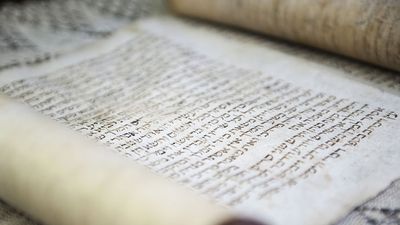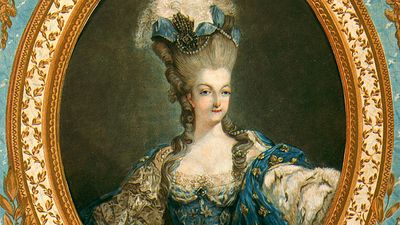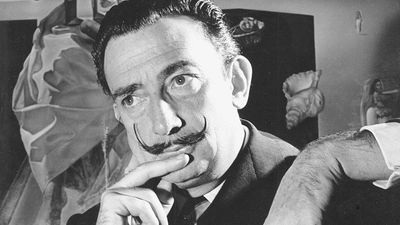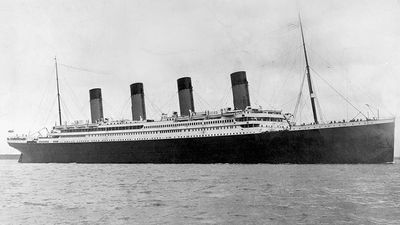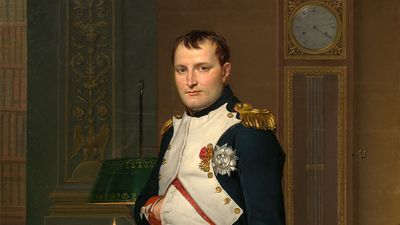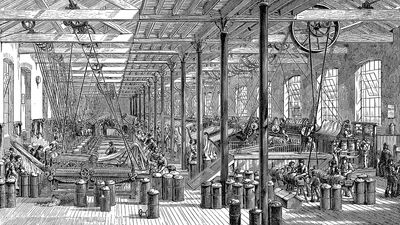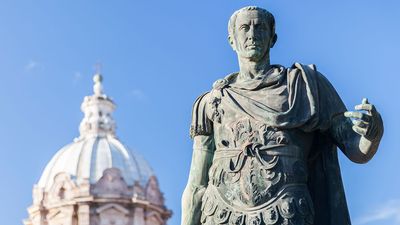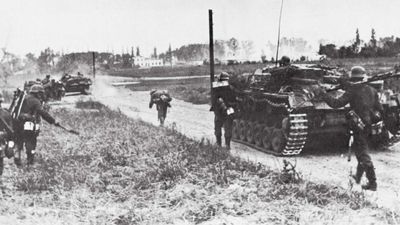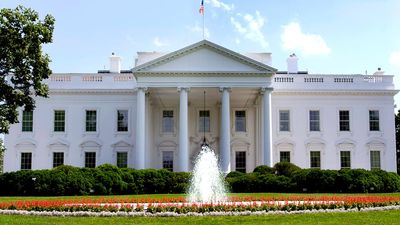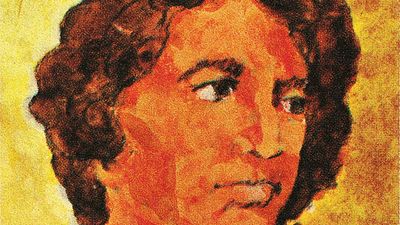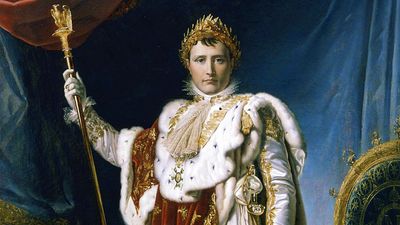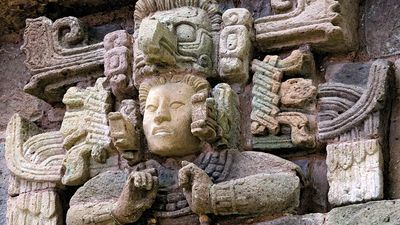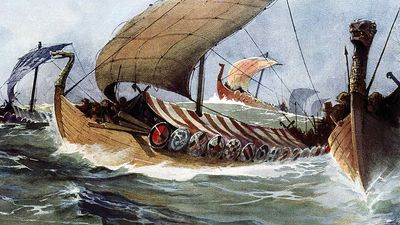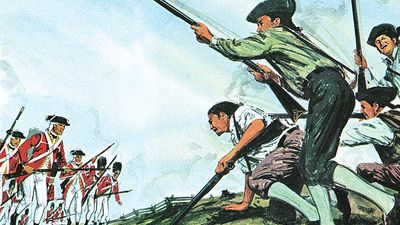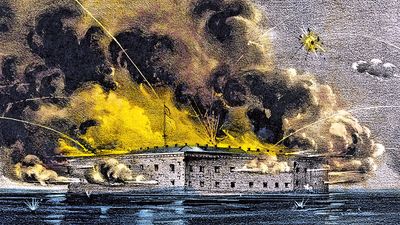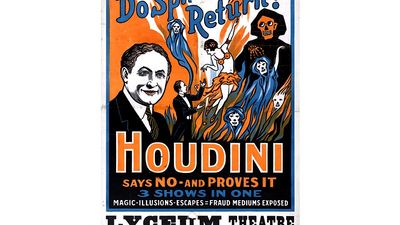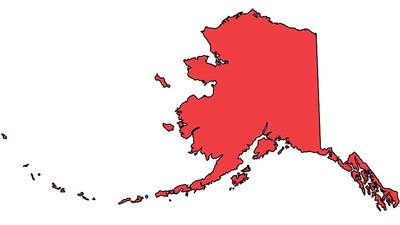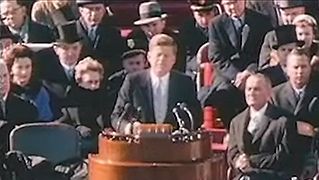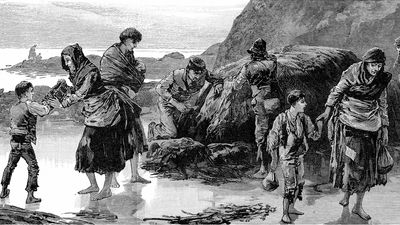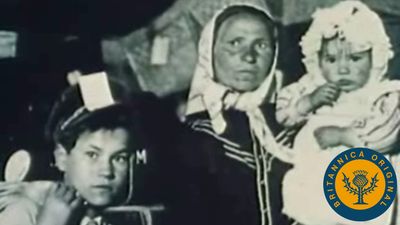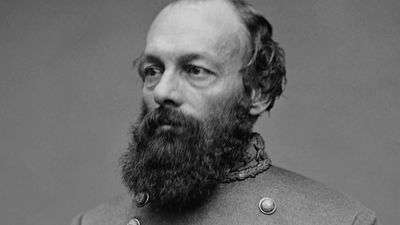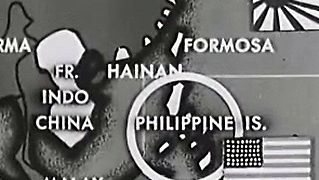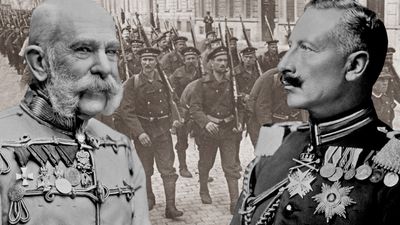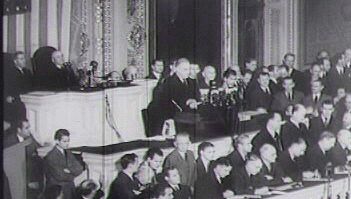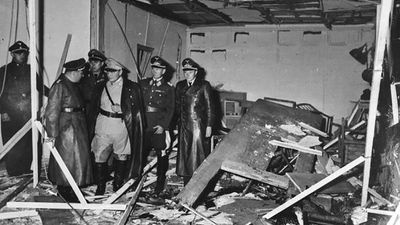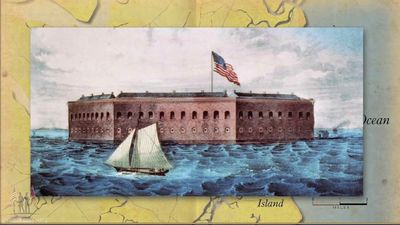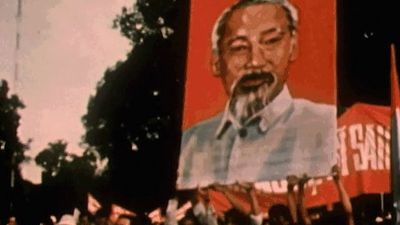World History
Does history really repeat itself, or can we learn from the mistakes of those who came before us? History provides a chronological, statistical, and cultural record of the events, people, and movements that have made an impact on humankind and the world at large throughout the ages.
Browse Subcategories
Featured content, June 08, 2023
Before the E-Reader: 7 Ways Our Ancestors Took Their Reading on the Go
Books have been around for a long time. But not always.
Did Marie-Antoinette Really Say “Let Them Eat Cake”?
Party like it’s 1789
Famous Mustaches in History
We mustache you a question: Who had the greatest mustache in history?
Timeline of the Titanic’s Final Hours
Learn more about the doomed ocean liner’s sinking.
Napoleon I
Napoleon I, French general, first consul (1799–1804), and emperor of the French (1804–1814/15), one of the most celebrated...
Industrial Revolution
Industrial Revolution, in modern history, the process of change from an agrarian and handicraft economy to one dominated...
Julius Caesar
Julius Caesar, celebrated Roman general and statesman, the conqueror of Gaul (58–50 bce), victor in the civil war of 49–45...
World War II
World War II, conflict that involved virtually every part of the world during the years 1939–45. The principal belligerents...
World History Quizzes
World History Videos
Image Gallery
World History
View Gallery
World History Subcategories
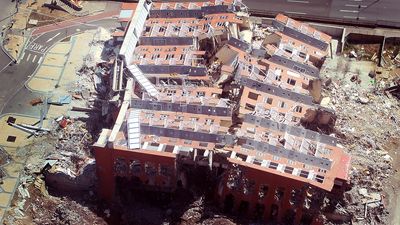 Accidents & Disasters
Accidents & Disasters
Nature isn’t always peaceful and idyllic. Earthquakes, tsunamis, hurricanes, and other powerful natural phenomena can have devastating consequences on communities and regions throughout the world. But nature is far from the only instigator of large-scale misfortune; human-made disasters and tragedies, both accidental and intentional, can cause significant misery, damage, and loss of life.
Articles
- Japan earthquake and tsunami of 2011
-
Great Famine
famine, Ireland [1845–1849]
-
complex humanitarian emergency
disaster event
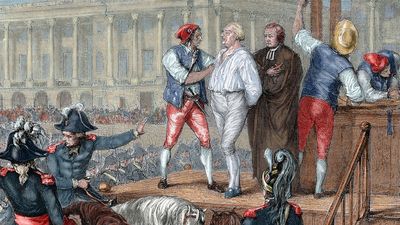 Age of Revolutions
Age of Revolutions
This general category includes a selection of more specific topics.
Articles
-
Haitian Revolution
Haitian history
-
Glorious Revolution
English history [1688–1689]
-
Russian Revolution
Russian history [1917]
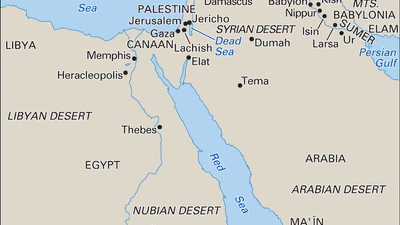 The Ancient World
The Ancient World
The modern world may look very different from the world that existed in the time of ancient civilizations, but our modern-day life continues to show the influence of cultures, traditions, ideas, and innovations from hundreds of years ago. Learn more about important historical civilizations, sites, people, and events.
Articles
- Bronze Age
-
ancient Rome
ancient state, Europe, Africa, and Asia
-
cuneiform
writing system
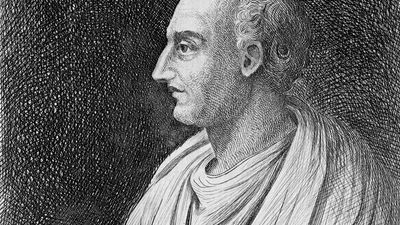 Historians
Historians
This general category includes a selection of more specific topics.
Articles
-
Livy
Roman historian
-
Jules Michelet
French historian
-
Thomas Carlyle
British essayist and historian
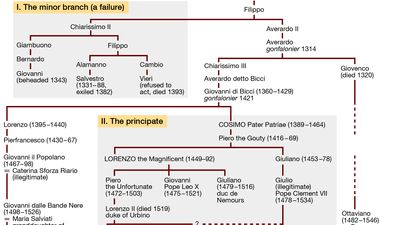 Historic Dynasties & Families
Historic Dynasties & Families
This general category includes a selection of more specific topics.
Articles
-
Wei dynasty
Chinese history [386-534/535]
-
Hōjō Family
Japanese family
-
Fujiwara Family
Japanese family
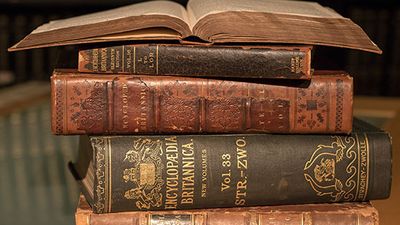 Historic Nobility
Historic Nobility
This general category includes a selection of more specific topics.
Articles
-
Robert
duke of Apulia
-
Mohammed bin Salman
Saudi Arabian prince
-
Philip
landgrave of Hesse
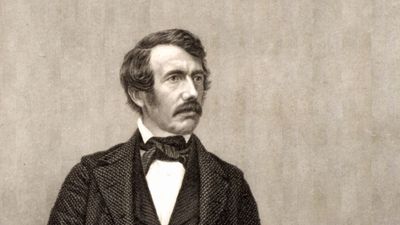 Global Exploration
Global Exploration
This general category includes a selection of more specific topics.
Articles
-
Daniel Boone
American frontiersman
-
Sir Francis Drake
English admiral
-
William Clark
American explorer
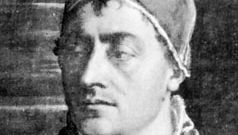 The Middle Ages
The Middle Ages
The Middle Ages comprise the period in European history that began with the collapse of Roman civilization in the 5th century CE and lasted until the dawn of the Renaissance in the 13th, 14th, or 15th century. This interval of time saw the development of the Gothic style of art and architecture, flying buttresses and all. It was also the era of the Crusades and of papal monarchy, and it was during this period that the idea of Europe as a distinct cultural unit emerged.
Articles
-
Western Schism
Roman Catholic history
-
Fall of Constantinople
Byzantine history [1453]
-
Battle of Agincourt
European history
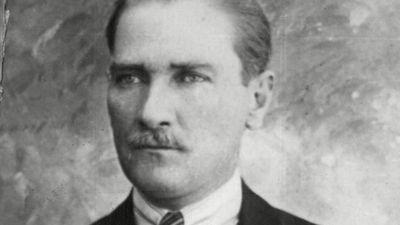 Military Leaders
Military Leaders
This general category includes a selection of more specific topics.
Articles
-
George Washington
president of United States
-
Andrew Jackson
president of United States
-
Augustus
Roman emperor
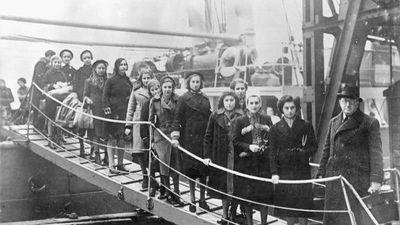 The Modern World
The Modern World
This general category includes a selection of more specific topics.
Articles
-
Kindertransport
European history [1938–1940]
-
Spanish Inquisition
Spanish history [1478–1834]
-
two-state solution
Israeli-Palestinian history
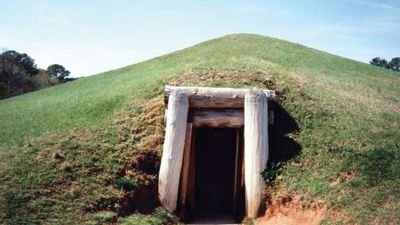 Prehistoric Age
Prehistoric Age
The prehistoric age covers the millions of years that took place before human beings began to create written records of their life and of the world in which they lived. Archaeology and similar fields of study allow us to fill in the gaps and piece together an image of what life was like for our ancestors, including what kinds of flora and fauna they might have encountered.
Articles
-
Mississippian culture
ancient North American culture
-
Mogollon culture
North American Indian culture
-
Stonehenge
ancient monument, Wiltshire, England, United Kingdom
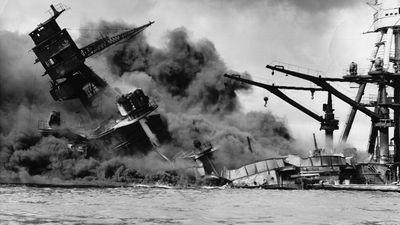 United States History
United States History
As with most nations, the history of the United States contains a number of twists and turns throughout the centuries, from the time of the English colonization of North America up to the modern-day America that we're familiar with. Learn more about the people, events, and movements that left an indelible mark in history and shaped the development of the United States as a nation.
Articles
-
9-11 Commission
United States commission
-
American Revolution
United States history
-
Mexican-American War
Mexico-United States [1846–1848]
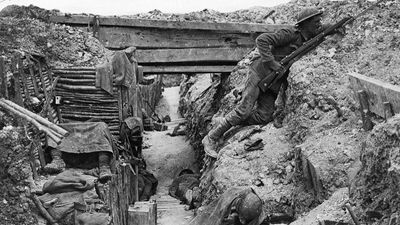 Wars, Battles & Armed Conflicts
Wars, Battles & Armed Conflicts
Wars, battles, and other domestic or international conflicts, whether armed or diplomatic, are often the outcome of a dispute over natural resources or a struggle for power, influence, and wealth. Major conflicts between nations, peoples, and political groups can end up shifting the cultural and political geography of the world and can also effect change, whether intentional or not, in societal values and the balance of power.
Articles
-
Wars of the Roses
English history
-
Napoleonic Wars
European history
-
American Revolution
United States history

